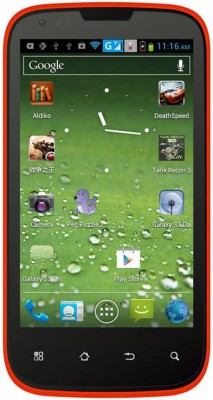In their report titled “Android App Performance Trends,” online security
company AVG identifies the Android apps people use on their smartphones
and tablets that are the biggest hogs on data, storage, battery life,
and overall performance. The report uses information collected from
their own Android security and battery management apps in use on Android
phones.
As smartphones become more and more powerful, apps are created that
allow us to do more and more things with them. They keep us connected
with friends and relatives. They entertain us, educated us and make us
more productive, at home, in the office or on the go. The processing
power smartphones put in the palm of our hands is actually rather
astonishing when you compare them to what desktop computers were capable
of only 25 years ago.
When it comes to installing apps, most people don’t seem too
particular about what put on their phones, or the impact they will have
on battery life and performance. For all I know, they think the App
Fairy just left a great new app on the front porch of the Google Play
store, and it’s completely free for the taking. Little do they know the
app may be using their bandwidth and data allotment to constantly
download or update banner ads to be displayed on-screen the next time
they open the app. Or worse, even if they DON’T open the app.
Chances are, the app does come with a price, in the way of collecting your data and using your bandwidth to upload that data to their
servers. While this is going on, you may be cursing your phone for
sluggish performance and your cellular provider for lousy service. They
get the blame, because real offender is operating behind your Home
screen, where you can’t see what’s really going on.
Even the AVG app on your smartphone was using resources and mobile
data to collect and upload information about your apps and the impact
they have your phone’s performance and battery. But, we wouldn’t have
this report without it. So, we’ll forgive them… this time.
Even for more advanced users, it’s a difficult task to keep up with
identifying and preventing apps from causing soaring data bills,
sluggish or unresponsive devices, and batteries that drain faster that
you can say, “Where’s my charger!”
The Rundown
The data in AVG’s report was collected in the US, UK and Australia
during Q3 of 2015. The apps in question were ranked for averages on
battery consumption, storage space used, and mobile data consumed, and
impact on overall performance based on real usage.
Here is the rundown, in order of impact, of the ten biggest offenders
in each of three categories, including apps that run at start up and
apps the user runs after start up.
Overall Impact on Performance (run at start up)

- Facebook (the app)
- Google Play Services (not the Play Store app, itself)
- BlackBerry Messenger (popular with former BlackBerry users)
- Instagram (a Facebook property)
- Facebook Messenger
- ChatON Voice & Video Chat (Samsung)
- Facebook Pages Manager
- The Weather Channel
- Kakao Talk
- WhatsApp Messenger
Most of these apps run as soon as your phone start up. None of
these apps are actually essential to the phone’s operation. But, without
Google Play Services, many of your Android phone’s features would not
work.
The greediest apps run by the user after start up include Snapchat,
Amazon Shopping UK, Clean Master, Line, Netflix and Microsoft Outlook.
If your phone feels sluggish and the battery life is weak, one of these
apps could be a big part of the reason.
Mobile Data (run at start up)

- Facebook (see a pattern here?)
- Yahoo! Japan
- Avast Antivirus & Security (they must be collecting user info too)
- The Weather Channel
- iHeartRadio
- Google Play Services (supports many Google features)
- APUS Launcher
- Groupon (I hope you’re saving big bucks!)
- WeatherBug
Setting these apps to not run at start up, if the option is
available, could save a bucket load of data. Top data hogs run by the
user after start up include Netflix, Snapchat, Tumblr, Clean Master,
Samsung’s WatchON video app, Spotify Music and Microsoft Outlook. Yes,
Microsoft’s notorious bloat factor now affects Android devices too.
Tinder rounds out the top 10.
Battery Drain (run at start up)

- Android Firmware Updater
- Beaming Service (Samsung)
- Security Policy Updater (Samsung)
- ChatON Voice & Video Chat (Samsung)
- Google Play Services
- BlackBerry Messenger (BBS) (still popular, and growing)
- Weather & Clock Widget (Android)
The reason Samsung-specific apps ranked so high on this list is
because, as the report also noted, nine out of the 10 most in-use phones
are Samsung models.
The biggest battery drainers run after start up included WatchON
Video (Samsung), Snapchat, Amazon Shopping UK, MS Outlook, BBC News,
Netflix, Line (call and messaging app), Clean Master, Walmart and Amazon
Shopping (global).
The Rest of The Story
Rather than list the biggest storage hogs, suffice it to say that
most were apps already listed in one or more categories discussed
already. A casual stroll through the Apps list in your phone’s Settings
will reveal the biggest users of internal memory or storage space.
Excluded from this article are games.
It almost goes without saying that many of the most popular Android
games are going to use lots of storage and lots of processing power, of
which the consequence is rapid battery drain.
Getting Control

The report from AVG was also kind enough to offer their suggestions
for boosting battery life, freeing up storage space and reducing mobile
data usage.
- Limit notifications. Some regular notifications can be useful. But, not all of them. Unnecessary notifications eat up battery and can contribute to sluggish performance.
- Reduce background features and the frequency of refresh intervals, location retrieval and in-app notifications.
- Clear app caches occasionally, including the cached data in Settings > Storage > Cached Data. If you use a cleaner app, run in manually and make sure it only runs when you start it.
- Turn off the Auto-play feature in Facebook so videos only load when you ask them to. Turn off other background data transfers.
- Turn off Wi-Fi, Bluetooth and GPS when not in use. Each of these internal radio/receiver components use battery power and should be disabled when not in use. If you scroll to the rear of the Apps drawer, you may find the Power Bar app that you can place on your Home page and gives you quick access to enable/disable those features.
- Turn down the screen brightness, or set to Auto. Auto will turn the brightness down when it detects low levels of ambient light. But, you may be comfortable with manually reducing screen brightness to save even more battery power.
*There’s more information in the full report, including the top 50 Android apps in use.
So, what’s the biggest performance drain and battery hog on your
smartphone? And, what do you think is more important, a slim phone or a
battery that lasts longer than a round of Spider Solitaire?


No comments:
Post a Comment